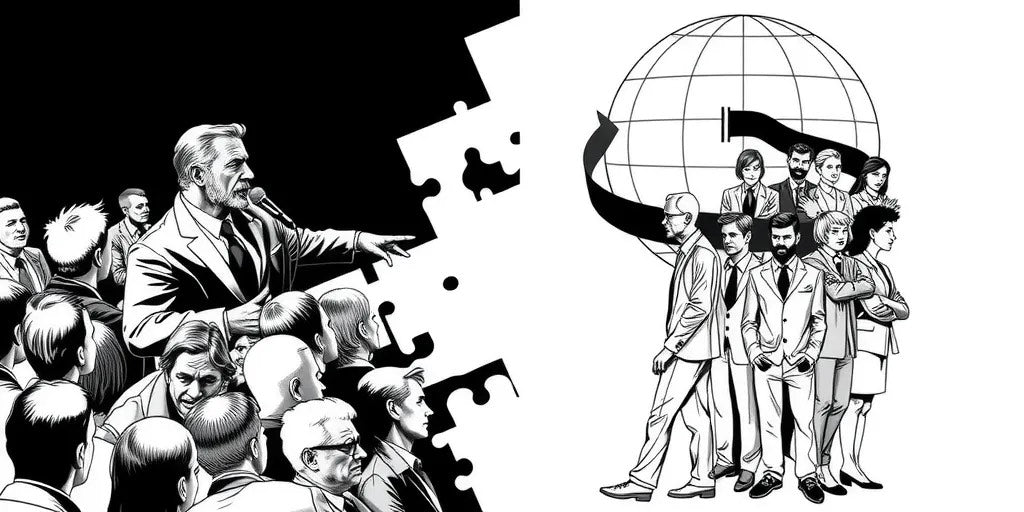
Has Populism Changed What We Value in Leaders?
Share
Leadership used to mean having vision, integrity, and the ability to bring people together. But today, it feels like those values are changing. Populism, rising all over the world, is forcing us to rethink what we want in a leader. With emotional speeches and division dominating the spotlight, we have to ask: are we giving up on the qualities that once defined great leadership?
Populism: A Long-Standing Influence
Populism isn’t new, but its impact today is clearer than ever. Leaders like Benito Mussolini, Donald Trump, and Jair Bolsonaro gain support by tapping into anger and fear, offering simple solutions to complex problems. They focus on what people are frustrated about and promise to put their country first. While these tactics are effective, they raise a tough question: are we choosing leaders based on emotion instead of thoughtful decision-making?
We all know what happened around Cătălin Georgescu. For millions, his approach worked. Georgescu energized a large part of the electorate through connecting with people’s anger and frustrations, and sowing more division to increase a sense of “we, against those who have failed us.” But it also came with a cost: the country became even more divided. Is this what we now value in leaders? Short-term success that leaves societies fractured and institutions weakened?
A Change in What We Value
When we think of great leaders, someone like Nelson Mandela often comes to mind. After spending decades in prison, Mandela became a leader who focused on unity and healing, not revenge. He brought South Africa out of apartheid by encouraging reconciliation. One powerful moment was when he supported the national rugby team, showing the country how to come together.
Today’s leaders often take a different path. Many focus on amplifying frustrations and feeding into fears, instead of solving problems or uniting people. This trend is shaping how leadership is seen not just in politics but in businesses, communities, and even families. It feels like bold promises and strength are being valued more than peace and progress.
The Price of Division
Populist leadership often divides societies, and that division comes at a price. Leaders like Viktor Orbán in Hungary and Rodrigo Duterte in the Philippines use polarizing rhetoric to gain control. But this kind of leadership can weaken collaboration and inclusivity, making it harder for people to work together.
Think about Mandela again. He didn’t lead by dividing people but by bringing them together. Through efforts like the Truth and Reconciliation Commission, Mandela helped South Africans confront their painful history while building a shared future. He showed that leadership isn’t just about power, but that it’s also about healing and connection.
Leadership for a New Era
Leadership is always changing. It adapts to the times, reflecting cultural and political shifts. The rise of populism shows how much people want to feel seen and heard. Leaders like Donald Trump, with “Make America Great Again,” or Boris Johnson, with his push for Brexit, tapped into deep frustrations and offered simple, powerful messages.
But simple messages aren’t enough. Populism might connect with emotions, but it often lacks the constructive vision needed to move societies forward. That’s the key difference between populist leaders and someone like Mandela. Mandela didn’t take the easy path of fueling anger; he challenged people to rise above it.
Addressing Frustrations Without Fear and Division
The rise of populism doesn’t happen in a vacuum. It emerges because millions of people feel unheard, unseen, and left behind. The frustrations and anger that fuel populism can’t be ignored—but they don’t have to be exploited, either.
Great leaders don’t just mirror their followers’ emotions; they channel those emotions into constructive action. They listen, empathize, and offer real solutions while fostering a sense of shared purpose. So if we want to build a better model of leadership, we have to confront this reality head-on: people’s concerns need to be addressed, but without resorting to tactics that exploit fear and division.